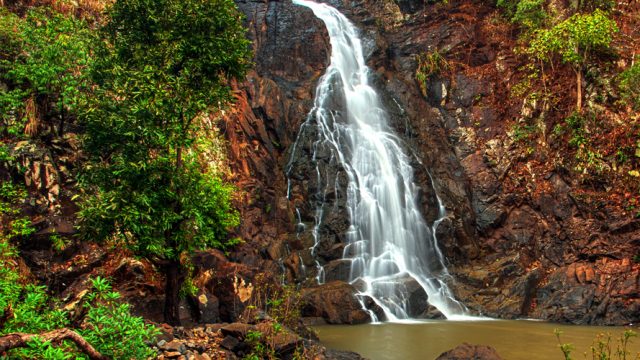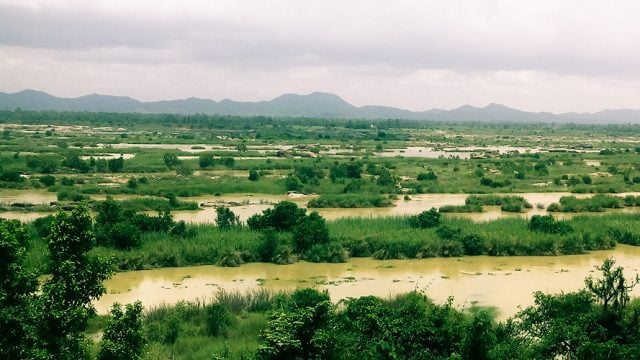Clay pots containing various ingredients—grains, pulses, vegetables—were piled high on top of one another over an open
The slow food movement, very much in vogue today, has been practised in the temples of Odisha for centuries. This was one of our first lessons as we entered the Ananta Vasudeva Temple in Bhubaneswar.
Nearly an hour ago, we had embarked on the Ekamra Heritage Walk, organised every Sunday morning. It is an initiative of the Bhubaneswar Municipal Corporation, Odisha Tourism and Bhubaneswar Development Authority executed through Detour Odisha. Our group comprised people from different parts of India who were in the city to attend the Odisha Tourism Conclave, organised by the Hotel and Restaurants Association of Odisha (HRAO).

The Ekamra Heritage Walk covers the older part of Bhubaneswar, an area known as Ekamra Kshetra in ancient times. While Odisha is popularly known as the land of Lord Jagannath, Bhubaneswar has always been Shiva’s abode. It is said that between the seventh and 12th century, the city had more than 7,000 temples, of which only a handful have survived.
Our walk began with a look at the Mukteswara Temple built in 950 CE. Intricate carvings, which featured images of divine forms, and scenes from everyday life, religious texts, the Panchatantra, etc, covered the arched gateway. It is said that the Kalinga style of temple architecture has evolved over time. Each of the temples we would see during the walk represented various periods of temple architecture. The Parasurameswara (650 CE) is the oldest temple still standing in Bhubaneswar, according to experts. The beehive-shaped tower (deul) and the porch in front (jagmohan) depict the development of Odisha’s temple architecture. There are eight planets on the doorway to the sanctum, an indication of the temple’s antiquity. Later temples feature nine planets.

Past the Kotitirtheswara temple, we reached Bindusagar. There are many legends associated with Ekamra Kshetra and Bindusagar, one being that it originated from a small stream when Shiva struck the ground with his trident to get water for a thirsty Parvati. The stream was sanctified with droplets (bindu) of water from all the holy rivers and lakes, and grew into a large lake. To the east of the lake was the Ananta Vasudeva Temple, dedicated to Lord Vishnu. Built by Queen Chandrika of the Eastern Ganga dynasty in the 13th century, it’s said to have been renovated by the Marathas in the 17th century. Although it is a Vishnu temple, the architecture is largely similar to the Lingaraja Temple, which was to be our next stop.
At the Lingaraja Temple, we climbed up to the observation deck that offered a panoramic view of the huge temple complex, lorded over by the 180-feet-high tower of the main temple. Historians say the current temple dates back to the 11th century and was probably preceded by a smaller one built in the seventh century.

The temple walk also covers temples such as Gauri Shankar, Chitrakarini, Papanasani, Sari Deul, Vaital Deul and others in the vicinity. While in Bhubaneswar, do not miss the Rajarani Temple, the Dhauli Stupa, and the Jain caves of Udayagiri and Khandagiri. According to ASI, Udayagiri and Khandagiri represent some of the earliest Jaina rock-cut architecture in eastern India.
The Ekamra Heritage Walk is held every Sunday. It is free of charge but requires prior registration. The walk starts at 6.30am from Mukteswara Temple, covers less than 2km and takes 2-3 hours. For registration and more details, see ekamrawalks.com
temples
Ekamra Heritage Walk
Mukteswara Temple





